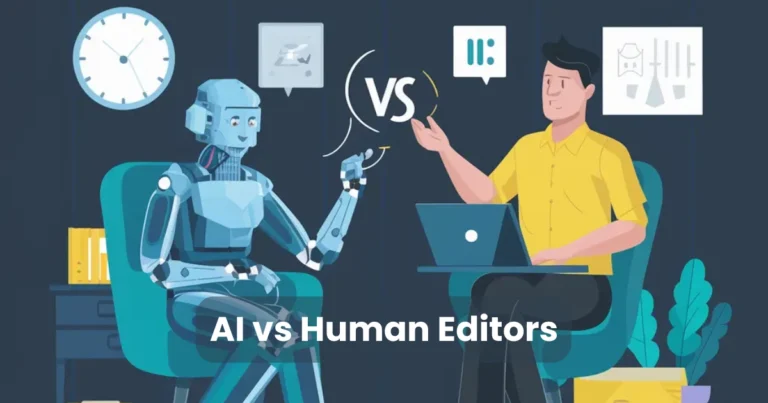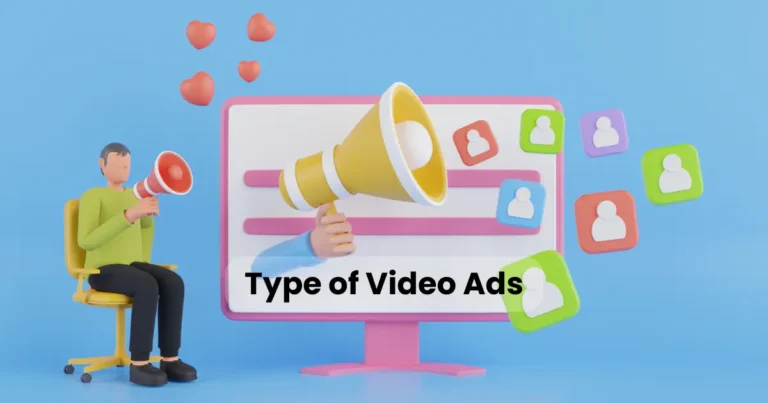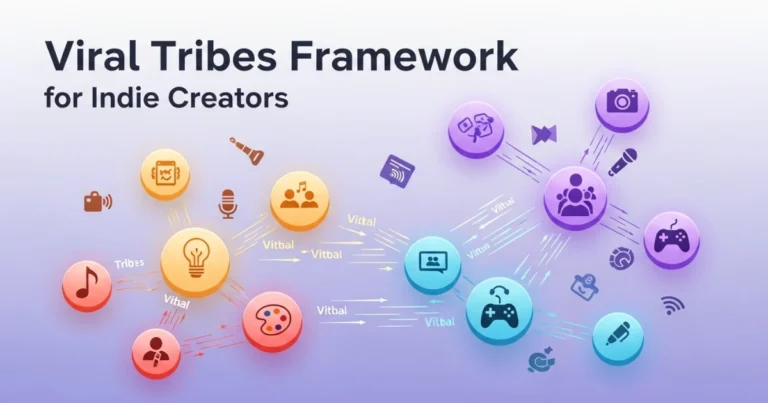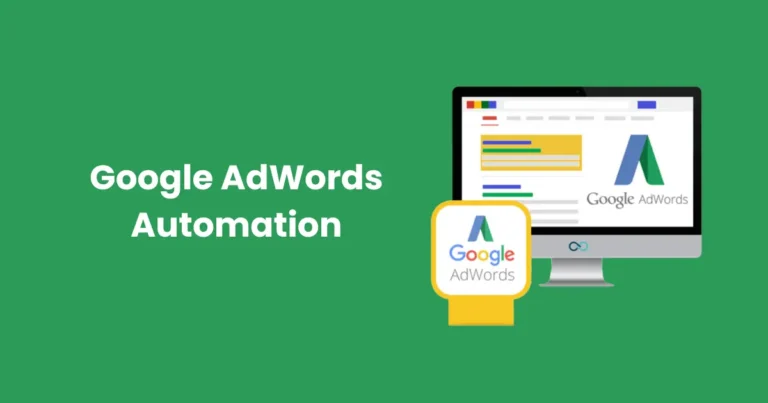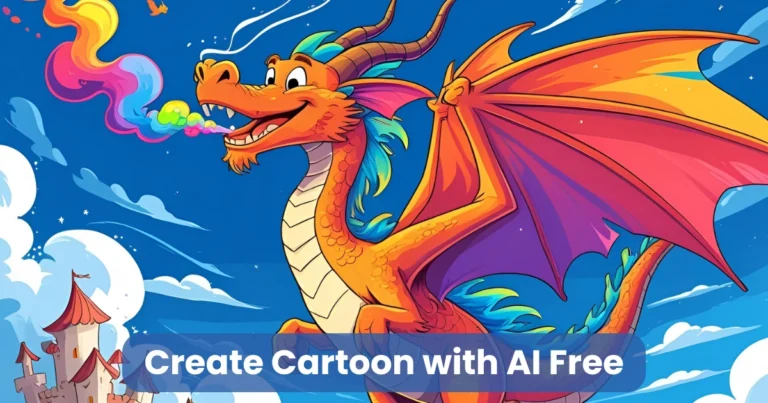AI Tools for Social Media Managers: What’s Working in 2025
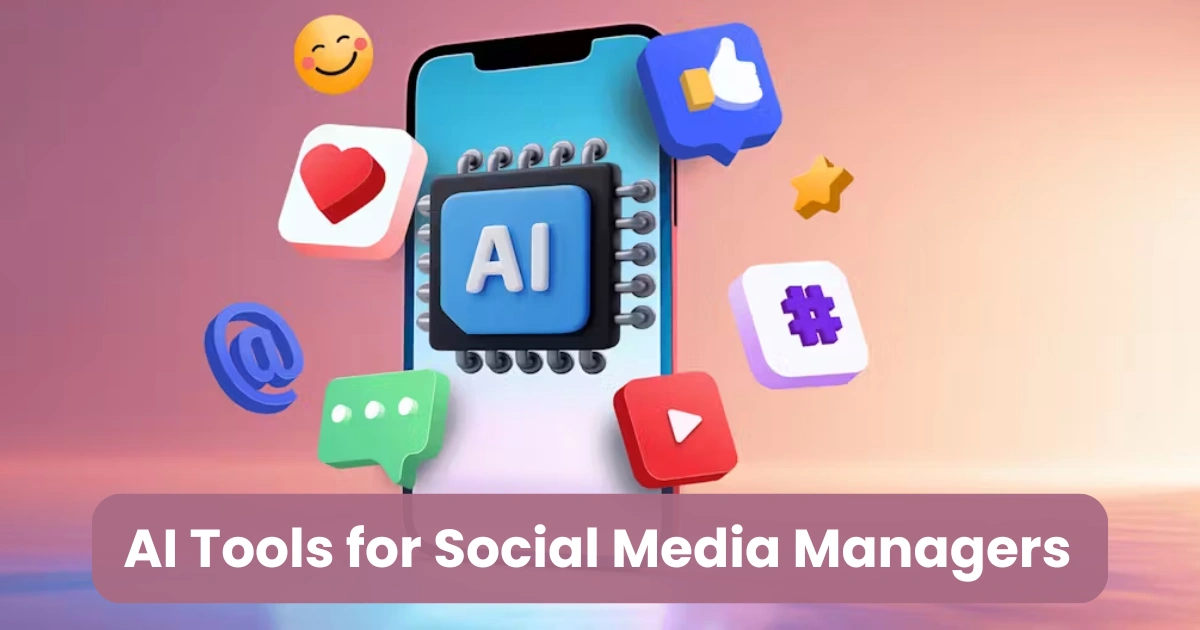
Contents
- 1 Why Social Media Managers Need AI Tools
- 2 Key Features to Look for in AI Tools
- 3 Top AI Tools for Social Media Managers in 2025
- 3.1 1. ChatGPT (OpenAI) – Your AI Content Assistant
- 3.2 2. Canva Magic Studio – AI-Powered Design for Social Media
- 3.3 3. Lately.ai – Turn Blogs into Dozens of Posts
- 3.4 4. Buffer with AI Assistant – Smart Scheduling Meets AI Writing
- 3.5 5. Brand24 – AI-Powered Brand Monitoring & Sentiment Analysis
- 3.6 6. Hootsuite OwlyWriter AI – Create Social Campaigns on Autopilot
- 3.7 7. Predis.ai – Generate Reels, Shorts, and Captions Fast
- 3.8 8. FeedHive – AI + Automation = Scalable Growth
- 3.9 9. Flick.ai – Hashtag Intelligence and Caption Generator
- 4 How AI Tools Improve Workflow and ROI
- 5 Real-World Case Studies
- 6 Challenges and Limitations of AI in Social Media
- 7 Best Practices for Using AI Tools Effectively
- 8 Future Trends in AI for Social Media Management
In today’s fast-paced digital world, AI tools for social media managers are no longer a luxury—they’re a necessity. Managing multiple platforms, creating engaging content, analyzing performance metrics, and staying ahead of trends requires more than just human effort. That’s where artificial intelligence steps in to transform the way social media professionals work.
These advanced tools help automate repetitive tasks, generate creative content, and offer valuable insights that drive smarter decisions. Whether you’re a solo content creator, part of a digital marketing team, or managing corporate accounts, AI is reshaping how you plan, execute, and optimize your social media strategy. With the right tools, you can streamline your workflow, boost engagement, and free up time for big-picture thinking.
Why Social Media Managers Need AI Tools
The role of social media managers has evolved far beyond simply posting updates and replying to comments. Today, they must craft compelling content, analyze real-time data, monitor brand reputation, schedule posts strategically, and engage with diverse audiences—all at once. To meet these demands efficiently, AI tools for social media managers have become indispensable.
AI-powered platforms allow managers to automate routine tasks like scheduling posts, generating hashtags, and curating content. This automation not only saves hours each week but also improves consistency and timing across multiple platforms. Furthermore, AI tools can analyze trends, suggest optimal posting times, and even forecast campaign performance based on historical data.
Additionally, AI tools enable faster content creation and personalization. Natural Language Processing (NLP) helps generate captions tailored to target audiences, while machine learning algorithms can recommend content types that resonate most with your followers.
Most importantly, AI tools for social media managers empower teams to scale their efforts without increasing workload. With detailed insights into audience behavior and engagement metrics, managers can make data-driven decisions that lead to better ROI.
In short, the integration of AI into social media workflows is not just helpful—it’s becoming mission-critical.
Key Features to Look for in AI Tools
Choosing the right AI tools for social media managers can make all the difference between running an efficient content machine and struggling with time-consuming manual tasks. With dozens of tools on the market, it’s essential to focus on features that truly elevate your strategy and save time.

Here are the top features to prioritize:
1. Smart Scheduling & Auto-Publishing
An AI tool should allow you to plan, schedule, and automatically publish posts across multiple platforms. Advanced tools can even suggest the best times to post based on audience engagement.
2. AI-Generated Content
Look for platforms that offer natural language generation for captions, tweets, and even blog snippets. This ensures you’re never short on content ideas and always aligned with brand voice.
3. Visual Content Assistance
Many AI tools for social media managers include features like AI image enhancement, auto-layout design, or video resizing to optimize visuals for each platform.
4. Predictive Analytics & Insights
AI-powered analytics can track trends, forecast performance, and measure KPIs more accurately. These insights help you adjust strategies on the fly for maximum ROI.
5. Sentiment & Engagement Monitoring
With AI, you can monitor comments and mentions in real time. Sentiment analysis helps you understand how your audience feels—crucial for brand reputation.
6. Content Curation & Trend Tracking
Effective AI tools scan the web for trending content relevant to your niche and suggest articles, hashtags, or topics to share—keeping your brand current and visible.
7. Chatbots & Auto-Replies
If you’re managing social inboxes, AI chatbots can handle basic queries or offer instant responses, improving customer service while saving time.
Top AI Tools for Social Media Managers in 2025
With new platforms and features launching constantly, staying ahead of the curve is more challenging than ever. Thankfully, the latest AI tools for social media managers in 2025 offer innovative solutions to create, schedule, analyze, and engage—all in one place. Below are the top tools making waves this year.

1. ChatGPT (OpenAI) – Your AI Content Assistant
ChatGPT helps managers brainstorm post ideas, draft engaging captions, respond to comments, and even plan full content calendars. Its ability to generate human-like text saves hours every week.
2. Canva Magic Studio – AI-Powered Design for Social Media
With its intuitive drag-and-drop interface and AI-enhanced design suggestions, Canva’s Magic Studio makes it easy to create professional-grade images, infographics, and video posts in minutes.
3. Lately.ai – Turn Blogs into Dozens of Posts
This tool uses AI to analyze long-form content—like blogs or podcasts—and turn them into multiple platform-optimized social media posts, tailored to your brand tone.
4. Buffer with AI Assistant – Smart Scheduling Meets AI Writing
Buffer now integrates an AI caption assistant that learns from your top-performing posts. It helps you schedule smarter, write better, and post consistently with confidence.
5. Brand24 – AI-Powered Brand Monitoring & Sentiment Analysis
Brand24 scans social platforms, blogs, and forums in real time. Its AI identifies mentions, tracks brand sentiment, and notifies managers when action is needed to protect reputation.
6. Hootsuite OwlyWriter AI – Create Social Campaigns on Autopilot
OwlyWriter generates full content series, rewrites high-performing posts, and provides engagement-focused hashtags and captions—all powered by intelligent machine learning.
7. Predis.ai – Generate Reels, Shorts, and Captions Fast
Perfect for TikTok and Instagram, Predis.ai transforms text prompts or product descriptions into scroll-stopping short-form video content with optimized hashtags and music.
8. FeedHive – AI + Automation = Scalable Growth
FeedHive helps you create A/B tested posts, suggest viral formats, and even predict the performance of your campaigns before publishing—all thanks to real-time AI learning.
9. Flick.ai – Hashtag Intelligence and Caption Generator
Ideal for Instagram managers, Flick.ai recommends the most relevant hashtags, analyzes performance, and helps you craft AI-generated captions that convert.
These cutting-edge AI tools for social media managers are designed to meet the unique demands of content creation, community engagement, and performance analytics. By integrating the right mix of tools, managers can elevate brand presence, reduce manual work, and achieve measurable results across every platform.
How AI Tools Improve Workflow and ROI
One of the biggest advantages of using AI tools for social media managers is the dramatic improvement in workflow efficiency and return on investment (ROI). With the ability to automate, analyze, and optimize every part of the content lifecycle, these tools help managers focus more on strategy and less on repetitive tasks.

Streamlined Content Creation
Instead of spending hours writing captions or coming up with ideas, AI tools generate post suggestions, hashtags, and even entire content calendars in minutes. This allows managers to maintain a consistent publishing schedule with less effort.
Smarter Scheduling
AI-based scheduling tools analyze when your audience is most active and recommend optimal times to post. This means better reach and engagement without the need for trial and error.
Real-Time Analytics and Insights
Modern AI tools for social media managers offer real-time analytics dashboards that go beyond likes and shares. They detect patterns, highlight what’s working, and suggest data-driven improvements, helping you refine your strategy instantly.
Improved Team Productivity
By automating time-consuming tasks like image editing, social listening, and content repurposing, AI tools free up time for your team to focus on high-impact activities such as campaign planning and influencer outreach.
Cost Savings and Higher ROI
Since AI tools take on tasks typically handled by multiple team members or expensive outsourcing, they reduce operational costs. At the same time, they improve campaign performance, audience targeting, and engagement—resulting in higher returns with less investment.
In short, integrating AI tools for social media managers into your daily workflow helps you do more with less—more content, more engagement, and more insights, all with less time, effort, and expense. This smart automation is not just a time-saver; it’s a game-changer for ROI.
Real-World Case Studies
To understand the tangible value of AI tools for social media managers, let’s look at how real businesses have successfully integrated these technologies into their workflows. These examples highlight measurable gains in productivity, engagement, and return on investment.

Case Study 1: Retail Brand Boosts Engagement by 65% Using Predis.ai
A fashion retailer with a strong Instagram presence struggled to create enough engaging content to keep up with trends. After adopting Predis.ai, the team automated short-form video production and AI-generated captions.
Results:
- 40% reduction in content creation time
- 65% increase in post engagement
- 3x growth in Instagram Reels reach
Case Study 2: Nonprofit Saves 10+ Hours Weekly with Lately.ai
A nonprofit focused on education wanted to repurpose its blog content into daily social posts but lacked the staff to do so manually. Lately.ai enabled them to generate dozens of platform-specific posts in seconds.
Results:
- 10+ hours saved each week
- 400% increase in Twitter content output
- Improved donor engagement through consistent posting
Case Study 3: B2B SaaS Company Uses Brand24 for Proactive Reputation Management
A software company faced sporadic negative feedback on Reddit and Twitter. Using Brand24, they monitored sentiment and keyword triggers in real time, responding to issues before they escalated.
Results:
- 80% faster response time to negative comments
- Improved trust and transparency among users
- 12% increase in customer satisfaction ratings
Case Study 4: E-commerce Business Doubles ROI with ChatGPT-Powered Campaigns
An e-commerce brand used ChatGPT to generate copy for ads, product descriptions, and email campaigns. Combined with Buffer’s AI scheduler, their social strategy became more personalized and timely.
Results:
- 2x return on ad spend (ROAS)
- 35% increase in email open rates
- Consistent voice across all platforms
These success stories demonstrate that AI tools for social media managers are not just theoretical enhancements—they’re real solutions delivering quantifiable results. Whether you run a small business or manage a global brand, the right AI integration can elevate your social media strategy from good to exceptional.
Challenges and Limitations of AI in Social Media
While AI tools for social media managers offer impressive benefits, they are not without challenges. Relying solely on automation can sometimes lead to missed nuances, brand inconsistencies, or even reputational risks. It’s essential to understand where AI still falls short to use it wisely and effectively.

1. Lack of Human Emotion and Context
AI may generate content quickly, but it can struggle to interpret sarcasm, humor, or sensitive topics. Without human oversight, automated replies or captions may come across as tone-deaf or inappropriate.
2. Over-Automation Can Feel Robotic
Too much automation can make your brand appear impersonal. Social media thrives on authentic engagement, and when followers suspect bots are behind responses, trust can diminish.
3. Limited Cultural Awareness
AI tools are trained on large data sets but may not understand local customs, regional slang, or emerging cultural trends. This can result in content that feels out of touch or irrelevant to specific audiences.
4. Data Privacy and Ethical Concerns
Many AI tools for social media managers rely on user data to improve recommendations and targeting. However, if not managed properly, this can lead to privacy violations or non-compliance with regulations like GDPR.
5. Platform Dependence and Compatibility
Not all AI tools support every social media platform equally. Some may excel on Instagram but offer limited functionality on LinkedIn or TikTok, requiring managers to juggle multiple tools for full coverage.
6. Learning Curve and Initial Setup
Although AI tools are designed to save time, they often require training, integrations, and testing before they can perform optimally. This learning curve may frustrate teams new to automation.
Understanding these challenges helps social media professionals balance automation with authenticity. When used as assistants—not replacements—AI tools for social media managers can enhance workflow without compromising quality or connection.
Best Practices for Using AI Tools Effectively
To get the most out of AI tools for social media managers, it’s not just about choosing the right software—it’s about using it wisely. When applied strategically, AI can significantly improve productivity, engagement, and brand consistency. However, success depends on how you implement and manage these tools within your workflow.

Here are some proven best practices:
1. Combine AI with Human Oversight
AI can generate content, captions, and replies, but always review and refine outputs to ensure they align with your brand’s tone and values. A human touch maintains authenticity.
2. Start Small and Scale Gradually
Instead of automating everything at once, begin with one or two tasks—like scheduling or hashtag generation—and expand usage as your team gets comfortable with the tool.
3. Monitor and Adjust Frequently
Use analytics provided by your AI tools for social media managers to track performance. Adjust your content strategy based on what the AI reveals about engagement trends and audience behavior.
4. Customize AI Suggestions
Most tools allow customization. Train your AI to recognize specific brand keywords, preferred writing styles, or content formats. This improves both accuracy and consistency over time.5. Keep Content Original
AI is great for inspiration and automation, but don’t let it replace creativity. Blend AI-generated drafts with original ideas to stand out in a crowded feed.
6. Stay Updated on Platform Changes
Socal media platforms constantly update their algorithms. Ensure your AI tools stay compatible and updated so they continue to offer relevant insights and automation features.
7. Prioritize Security and Compliance
If you’re using AI tools that access audience data or comments, ensure they’re compliant with data privacy regulations (like GDPR). Choose tools with transparent policies and secure integrations.
Future Trends in AI for Social Media Management
As artificial intelligence evolves, so do the possibilities for social media professionals. The future of AI tools for social media managers is incredibly promising, offering smarter, faster, and more personalized ways to connect with audiences. Here are the top trends that are shaping the next wave of AI-driven social media strategy.

1. Hyper-Personalized Content at Scale
AI will soon be able to tailor every post, caption, and image for different audience segments automatically. Instead of one-size-fits-all messaging, expect personalized posts based on user behavior, location, interests, and past engagement.
2. AI-Generated Video and 3D Content
Text-to-video and AI-generated animation tools are advancing rapidly. Social media managers will soon use AI to create entire reels, stories, and even interactive AR content—without needing video editing skills.
3. Predictive Social Listening
Beyond tracking hashtags and mentions, the next generation of AI tools for social media managers will anticipate audience sentiment and detect brand risks before they go viral, helping teams respond proactively.
4. Voice and Conversational AI
AI-driven voiceovers, smart DMs, and chatbot conversations will sound more human than ever. This will allow brands to maintain round-the-clock customer service and lead generation, all powered by conversational AI.
5. Cross-Platform Automation and Intelligence
Future tools will unify data and workflows across all social media platforms. Managers will be able to automate campaigns, analyze results, and adjust strategies from a single AI-powered dashboard.
6. AI-Driven Influencer Discovery
New AI platforms will analyze millions of profiles to recommend the most relevant influencers based on brand fit, audience overlap, and performance metrics—streamlining influencer marketing dramatically.
7. Ethical AI and Transparent Algorithms
As AI grows, so will the demand for ethical transparency. Future AI tools for social media managers will need to clearly show how decisions are made—especially when it comes to content moderation and audience targeting.
The road ahead for social media management is powered by intelligent, ethical, and intuitive AI. Staying informed about these trends ensures you’re not just keeping up—you’re leading the way.
Conclusion
In today’s digital landscape, success on social media demands more than creativity—it requires efficiency, insight, and adaptability. That’s exactly what AI tools for social media managers deliver. From automating time-consuming tasks to generating high-performing content and analyzing real-time data, these tools empower social media professionals to work smarter, not harder.
As we’ve explored, AI is not here to replace human creativity but to enhance it. When used strategically, AI helps managers focus on what matters most: building authentic relationships, growing community engagement, and driving measurable results.
By staying informed, embracing best practices, and adopting the right AI tools, you position yourself ahead of the curve—ready for whatever the future of social media brings. Now is the time to leverage AI not just as a tool, but as a trusted partner in your digital strategy.

